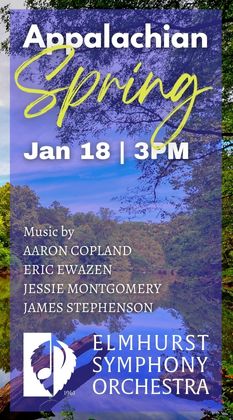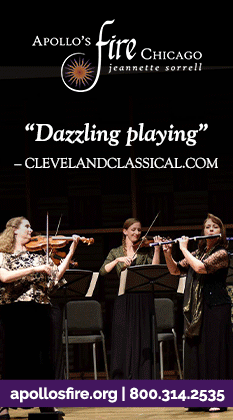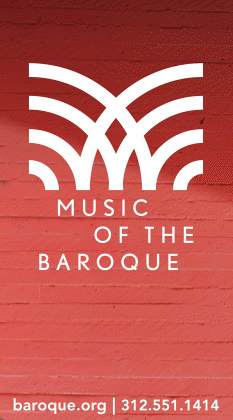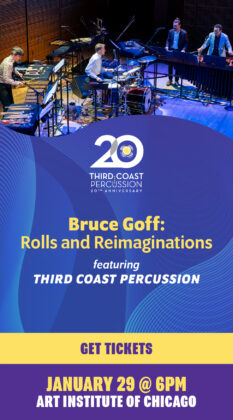Concertgebouw Orchestra lives up to its reputation with brilliant Brahms and Strauss

Listening to the extraordinary playing and chamber-like ensemble of the Royal Concertgebouw Orchestra Amsterdam Tuesday night at Symphony Center, there was little evidence to suggest that this was an orchestra currently without a music director, and that had to deal with controversy and an international scandal in recent months.
Daniele Gatti was only on the job as Concertgebouw chief conductor two years when the Washington Post published revelations last summer about the Italian conductor’s aggressive sexual misbehavior with female colleagues (including one instance when he was leading performances at Lyric Opera of Chicago in 1996).
To its credit, Concertgebouw management acted swiftly, dismissing Gatti a week later. Amid the fallout, that meant scrambling to fill his weeks on the podium in Amsterdam as well as on the orchestra’s tours.
Daniel Harding was tapped to lead the orchestra on its winter U.S. tour. But the British conductor had his own, less scandalous, difficulty—Harding slipped on ice while conducting in Japan last December and severely fractured his right ankle.
Harding proved a trouper. While limping badly, the conductor made his entrance unaided Tuesday night and had a waiting podium stool removed, as he elected to lead the entire concert standing.
The home venue that gives the Concertgebouw its name is famous for its deep, resonant glow, one suited to the program of Brahms and Strauss. Yet even in the bleached post-renovation acoustic of Symphony Center, one could still appreciate the corporate tonal richness and singular qualities of the Concertgebouw musicians in the performance of Brahms’ Symphony No. 4, which opened the evening.
Strings had burnished, gleaming tone yet were acutely focused. There were boatloads of personality in the winds—not least the two principal clarinets, Calogero Palermo and Olivier Patey, whose body language was as engaging as their musicianship.
Still, the playing was not immaculate; one of the horns had a surprising lapse in the high opening bars of Brahms’ Andante and there were fleeting yet discernible rough edges at some transition points.
One suspects that may have more to do with the orchestra getting accustomed to Harding than anything else. Although there was ample drama and excitement, Harding’s direction in the opening movement relied on a bluff, blunt-edged style with moments of rhythmic stodginess. The slow movement was beautifully played—the horn slip apart—but decidedly cool and on the surface for one of Brahms’ most emotionally unreserved inspirations.
Yet the performance gained strength as it continued. There was little giocoso in the Allegro giocoso but Harding and colleagues made a case for a darker, more driven approach.
This Brahms peaked in the finale, with the passacaglia theme and its ensuing iterations duly tough, biting and craggy for all the tonal polish. The stern, implacable quality of Brahms’ final symphony movement was manifest throughout yet one was continually taken by the solo playing of the Concertgebouw members—not least the respite of Kersten McCall’s radiant, pure-toned flute solo. Rarely has Brahms’ Fourth Symphony sounded more like a concerto for orchestra—-but with these musicians who’s complaining?
No orchestra enjoys as historic an association with Richard Strauss’s Ein Heldenleben than the Amsterdam ensemble. Strauss dedicated his autobiographical tone poem to the Concertgebouw Orchestra and its 27-year-old phenom conductor Willem Mengelberg (yet the composer elected to lead the 1899 world premiere himself in Frankfort). Theodore Thomas conducted the U.S. premiere with the Chicago Symphony Orchestra a year later and his copy of the (beautifully engraved) first Heldenleben edition still resides in the CSO archives.
Harding’s direction of this epic canvas proved more consistent, with the conductor handling the vast forces fluently and bringing out the sonic power and brilliant scoring of Strauss’s “Hero’s Life.” The protagonist’s theme went with ample striding swagger and firm ballast at the bass end. Strauss’s withering depiction of music critics (“The Hero’s Adversaries”) was duly humorous, the winds wittily painting his antagonists as wheedling and inconsequential pipsqueaks.
Concertmaster Liviu Prunaru’s slender, shimmering portrait of soprano Pauline de Ahna, Strauss’s formidable wife, was less edgy and querulous than most stateside renditions, making for a hero’s partner that seemed more tender and compassionate.
The motifs of previous Strauss works that waft by—in some remarkable contrapuntal writing—in the “Hero’s Works of Peace” could have been more clearly delineated and set off by Harding. But the battle with the hero’s critics was aptly cataclysmic with its off-kilter alarums and martial fanfares. If the solo horn didn’t quite match Prunaru’s hushed intimacy in the final bars, the blend of strength and benedictory solace was fully conveyed.
The capacity audience responded with a resounding ovation for Harding and the Amsterdam musicians, bringing the limping conductor out repeatedly and clearly wanting an encore. But it was not to be, with the orchestra on a tightly packed tour schedule (Washington DC Wednesday night and then on to Carnegie Hall).
No matter since the electricity of the Concertgebouw performances provided ample heat to send the Chicago audience out warmed into the snowy evening.
Posted in Performances





Posted Feb 14, 2019 at 10:41 am by NYMike
Looking forward to hearing this program @ Carnegie Hall Friday evening. The RCO is one of my two favorite bands, the other – Philadelphia.
Posted Feb 15, 2019 at 7:10 am by John
Well reviewed! The Brahms performance was very odd to me,and I think describing it as chamber like is very apt. The Strauss was phenomenal.